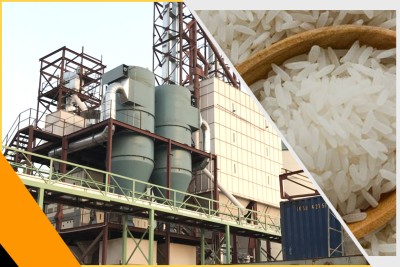- Phone: +977-9808226344
- Email: critnepal@gmail.com

Rice mills are enticing Nepali farmers with higher purchase prices, but this spells trouble for consumers. In Birgunj, the state-owned food trading company is grappling with acquiring paddy amid stiff competition from local traders and mills, driven by India's rice export ban.
Despite issuing procurement notices in early December, the Birgunj office has struggled to secure paddy sales, marking an unprecedented challenge, as stated by Pankaj Kumar Jha, the branch manager.
This year, all three branches of the Food Management and Trading Company in Madhesh province have faced difficulties in rice procurement, with zero rice stocks across the region.
The private sector's competitive prices have dissuaded farmers from selling to the company, leading to a shortage in branches across the province.
Traders note a significant surge in the price of Mansuli rice, up by Rs2.34 per kg compared to last year's Rs31.28 per kg, in line with the government's minimum support price of Rs33.62 per kg for Mansuli paddy.
However, despite India's provision of a 95,000-tonne rice quota to Nepal, coupled with a 20% export duty, traders foresee a rise of Rs300 to Rs400 per 25kg bag in the local market, affecting consumer prices.
Vibhor Agrawal, from the Association of Nepalese Rice, Oil, and Pulses Industries, highlights the added burden of a 20% export duty and 100% advance payment requirement for Indian rice imports.
This increase in import costs has pushed rice mills to offer higher prices to Nepali farmers, exacerbating concerns over consumer inflation.
The Food Management and Trading Company's Kathmandu headquarters has sanctioned the Birgunj branch to procure 4,200 tonnes of paddy this fiscal year, compared to 1,480 tonnes in the previous year.
The local market price for Mansuli paddy has surged to Rs41 per kg, with forecasts indicating a potential rise to Rs46 per kg.
Despite an expected bumper paddy harvest of 5.72 million tonnes this fiscal year, concerns remain over Nepal's reliance on imported rice to meet urban consumer preferences.
Rice mills, grappling with the fallout from India's export ban, are increasingly turning to local producers to satisfy demand amid the El Niño phenomenon.